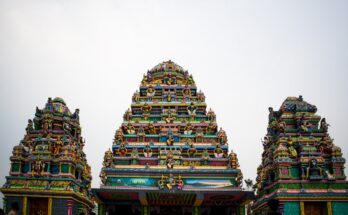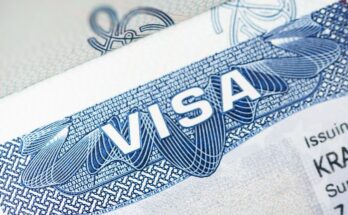Traveling abroad is an exciting and enriching experience. However, it requires careful planning and preparation to ensure that your trip goes smoothly. As an Indian traveler, there are certain considerations and requirements specific to your nationality that you need to keep in mind.
Travel Checklist for Indians
This basic international travel checklist for Indians will help you in your journey by covering crucial aspects such as passport and visa requirements, health and vaccinations, travel insurance, currency exchange, packing essentials, transportation options, accommodation booking, language and communication, local customs and etiquette, as well as safety tips.
Passport and Visa Requirements
Before embarking on your international adventure, make sure your passport is valid for at least six months beyond your intended stay. Check the visa requirements of your destination country well in advance and ensure that you have obtained the necessary visas. Some countries also require additional permits or clearance for specific activities such as trekking or visiting protected areas. Don’t forget to carry extra passport-sized photographs and a photocopy of your passport, which can come in handy in case of loss or theft.
Recommendation Reading: How Do I Renew My Passport in India?
Health and Vaccinations
Your health and well-being are paramount while traveling abroad. Consult your doctor or visit a travel clinic at least 4-6 weeks before your trip to discuss any necessary vaccinations or medications. Ensure you are up to date on routine vaccines such as measles, mumps, rubella, tetanus, and influenza. Additionally, research if your destination country has any specific health risks such as malaria, dengue fever, or Zika virus and take appropriate precautions. It’s also a good idea to carry a small first aid kit with essential medications, band-aids, and any personal prescription medications you may need.
Travel Insurance
Having travel insurance is vital to protect yourself against unexpected events such as medical emergencies, trip cancellation, or lost luggage. Before purchasing travel insurance, read the policy carefully to understand what is covered and any exclusions. Make sure it provides sufficient coverage for medical expenses and emergency medical evacuation. Keep a copy of your insurance policy, emergency contact numbers, and claims procedures handy during your trip.
Currency Exchange
Research the currency of your destination country and familiarize yourself with the current exchange rates. It’s advisable to convert a small amount of Indian currency to the local currency at your home country’s airport before departure, as it can be useful for initial expenses upon arrival. Exchange the bulk of your money either at local banks or authorized currency exchange counters at your destination. Avoid exchanging currency at airports or unauthorized outlets, as they may charge higher fees.
Packing Essentials
Packing efficiently and packing right can make a significant difference during your international travel. Here’s a checklist of some essentials:
- Clothing: Pack weather-appropriate clothing, taking into account the climate of your destination. Consider cultural norms and dress codes as well. Always carry a few extra pairs of undergarments and socks. Pack a lightweight jacket or sweater for unpredictable weather.
- Travel documents: Carry your passport, visa, and any other necessary identification documents in a waterproof organizer or pouch. Keep a photocopy of all these documents separately.
- Electronics: Don’t forget to pack your mobile phone, charger, adapter plugs, and any other electronic devices you might need. Check the voltage requirements of your destination country and carry a voltage converter if necessary.
- Toiletries: Carry travel-sized toiletries, including toothpaste, toothbrush, shampoo, conditioner, soap, and any other personal hygiene products you require. Ensure you adhere to the airline’s liquid restrictions.
- Miscellaneous: Pack a travel-sized umbrella, a universal travel plug, a comfortable neck pillow, a refillable water bottle, and a small backpack for day trips. Consider carrying a universal language translator app on your smartphone for easy communication.
Transportation Options
When planning your international travel, research the available transportation options at your destination. Depending on the country, you might have access to trains, buses, taxis, or ride-sharing services. Familiarize yourself with local transportation systems and try to download relevant apps or maps beforehand for convenient navigation. In some cases, renting a car might be an option, but be aware of the local traffic rules and driving conditions.
Accommodation Booking
Decide on the type of accommodation you prefer, whether it’s a hotel, hostel, guesthouse, or vacation rental. Research and book your accommodation well in advance to secure the best rates and availability. Read reviews from trusted sources to ensure the place meets your needs in terms of cleanliness, safety, and location. Consider factors such as proximity to public transportation, attractions, and food options when making your selection.
Language and Communication
To ease communication in your destination country, learn a few basic phrases in the local language such as greetings, thank you, please, and directions. Carry a pocket-sized language phrasebook or make use of language translation apps on your smartphone. Familiarize yourself with common local customs and etiquette to avoid any cultural misunderstandings.
Local Customs and Etiquette
Respecting local customs and etiquette is essential while traveling internationally. Research and understand the cultural norms of your destination country, including appropriate dress codes, gestures, and behavior. For example, in some countries, it might be customary to remove your shoes before entering someone’s home, while in others, it might be considered rude to point with your finger. Being aware and respectful of these customs will help you interact with locals and leave a positive impression.
Safety Tips
Prioritize your safety and security while traveling abroad by following these tips:
- Stay informed about the local laws, customs, and current events of your destination country.
- Keep your valuables, including your passport and money, in a secure and concealed place.
- Avoid displaying wealth or carrying large amounts of cash.
- Be cautious of your surroundings, especially in crowded areas or at night.
- Use reliable transportation options and avoid traveling alone, especially in unfamiliar areas.
- Keep a copy of the emergency contact numbers for your embassy or consulate.
- Share your travel itinerary and contact details with a trusted family member or friend back home.
Remember, careful planning and preparation will help ensure a smooth and enjoyable international travel experience. By following this ultimate travel checklist, you can focus on immersing yourself in new cultures, exploring beautiful destinations, and making lasting memories. Bon voyage




